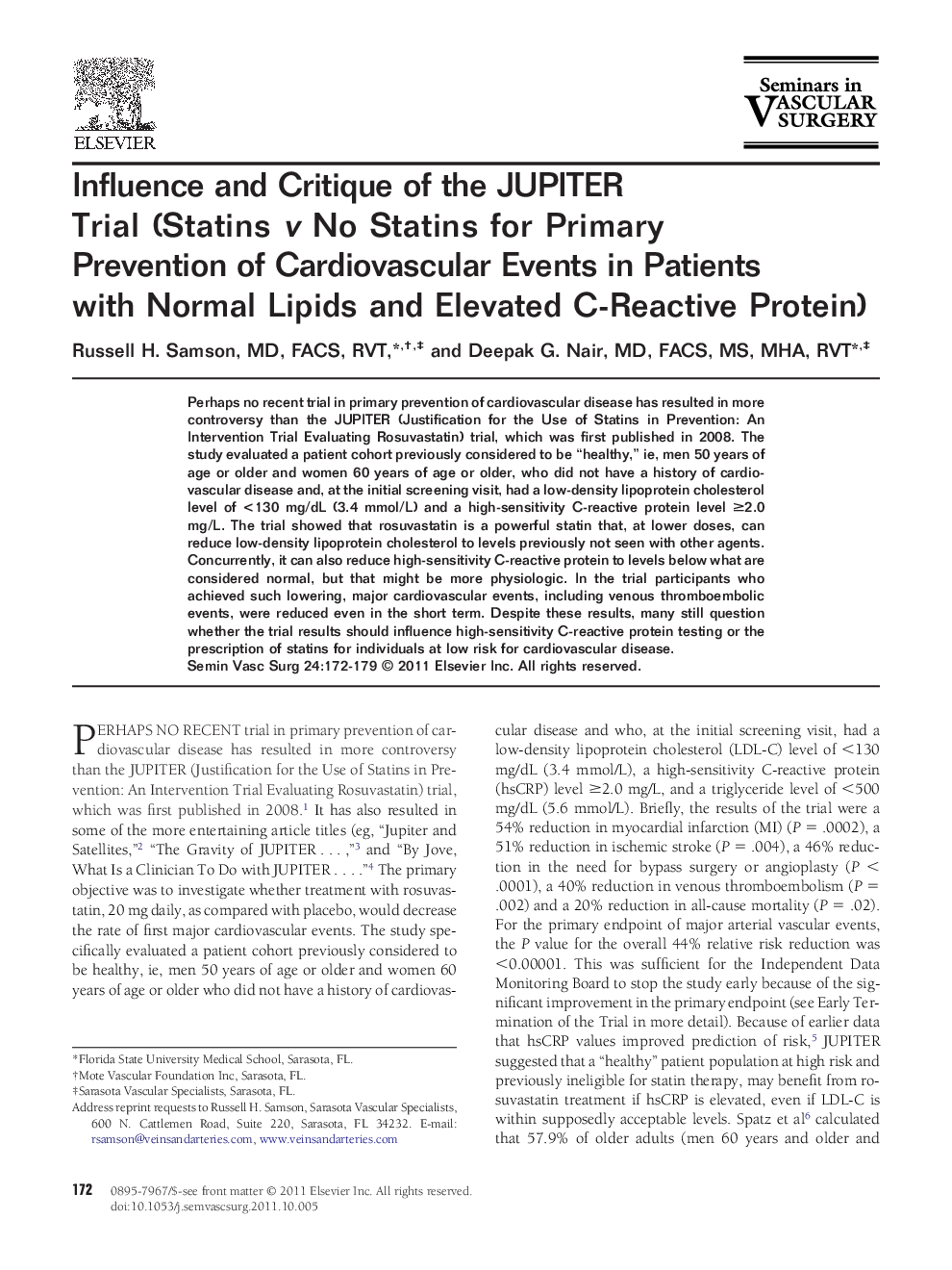| Article ID | Journal | Published Year | Pages | File Type |
|---|---|---|---|---|
| 3026194 | Seminars in Vascular Surgery | 2011 | 8 Pages |
Perhaps no recent trial in primary prevention of cardiovascular disease has resulted in more controversy than the JUPITER (Justification for the Use of Statins in Prevention: An Intervention Trial Evaluating Rosuvastatin) trial, which was first published in 2008. The study evaluated a patient cohort previously considered to be “healthy,” ie, men 50 years of age or older and women 60 years of age or older, who did not have a history of cardiovascular disease and, at the initial screening visit, had a low-density lipoprotein cholesterol level of <130 mg/dL (3.4 mmol/L) and a high-sensitivity C-reactive protein level ≥2.0 mg/L. The trial showed that rosuvastatin is a powerful statin that, at lower doses, can reduce low-density lipoprotein cholesterol to levels previously not seen with other agents. Concurrently, it can also reduce high-sensitivity C-reactive protein to levels below what are considered normal, but that might be more physiologic. In the trial participants who achieved such lowering, major cardiovascular events, including venous thromboembolic events, were reduced even in the short term. Despite these results, many still question whether the trial results should influence high-sensitivity C-reactive protein testing or the prescription of statins for individuals at low risk for cardiovascular disease.
